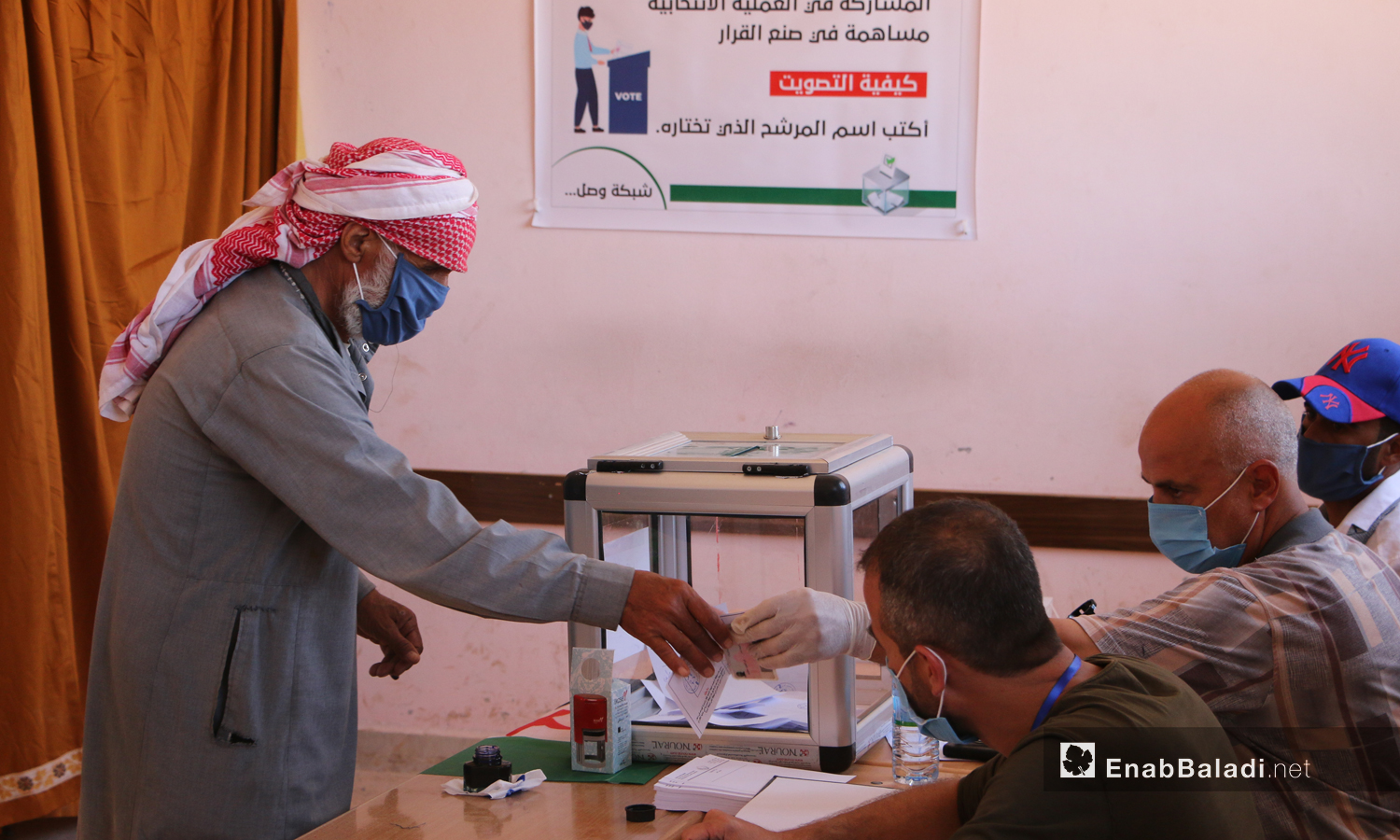



Aleppo – Abdul Salam Majaan
Many have come to the polling centers, some want to express their opinions, and others want to witness how elections are conducted. Mahmoud has been one of those wishing to participate in selecting the members of his town council.
The election organizers pointed out that for the “first time,” the people of the town of Tal Aar in the northern countryside of Aleppo had the opportunity to express their opinion and choose their representatives in the local council, at the beginning of this October, after it was customary to appoint them under the supervision of the Turkish sponsor of the region.
Mahmoud al-Hasan looked around the polling station as he observed what he considered a “good step,” hoping for “ the best,” as he told Enab Baladi, while placing the folded paper he filled in the transparent box.
The elections were held under the supervision of the “Free Aleppo Governorate Council,” which is affiliated with the Syrian Interim Government (SIG), through three centers: Tal Aar Sharqi, Ghorour, and Oweilin, with the participation of more than 700 voters out of 840.
Preparation for the elections took three weeks, and the “Free Aleppo Governorate” issued the decision to form an electoral commission on 12 September. The electoral process took place on 3 October and lasted eight hours, in which six boxes were used.
The only woman among the ten candidates withdrew from the contested elections “due to the societal and patriarchal norms,” as indicated by Asma al-Mahmoud, the young woman who displayed enthusiasm in her eyes underneath her black veil. She also spoke with Enab Baladi about the “active” female participation in the elections.
Women’s role in the election process was limited. They participated only as voters and organizers, according to al-Mahmoud, who is working with the Local Councils Unit that monitors the elections at the Women’s Center in the village of Zaarour.
The start of the elections required the appointment of an electoral commission, an appeals commission, and election oversight subcommittees, the head of the electoral commission, Ramadan Ramadan, told Enab Baladi. The lists of voters included the administrative unit children registered in its records, who are over 18 years old.
Several civil society organizations and institutions participated in monitoring the elections in the polling centers, such as “the Local Development Office and Small Projects Support,” “The Day After,” “The Syrian Women Gathering,” and “The Local Councils Unit.”
The Syrian Civil Defense and the Free Aleppo health directorate monitored health procedures during the elections, from sterilizing centers before the voters entered to distributing masks and sterilizers to them during the vote.
Although four new cases of the novel coronavirus (COVID-19) were recorded in the cities of Aleppo’s northern countryside on the day of the elections, the centers remained empty of confirmed cases. No cases were recorded among voters or organizers.
Other local councils previously considered conducting the electoral process to appoint their members. However, they failed, especially with the controversy that arose regarding the displaced people’s participation, whose numbers matched the number of registered residents in some villages and towns in the northern countryside of Aleppo.
if you think the article contain wrong information or you have additional details Send Correction